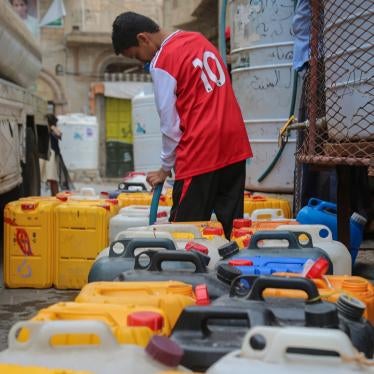“Every day is getting worse,” Rajaa Mosaabi, the chairwoman of the Arab Human Rights Foundation, based in Sanaa, told me by phone this morning about the deteriorating situation in Yemen. “Today alone I heard 20 to 25 bombs explode all around my home.”
The situation is difficult for everyone. But if you have a disability, it’s particularly bad.
Because of the limited fuel, lack of electricity and rubble-covered streets, people with disabilities – particularly those in wheelchairs – cannot readily move about and have become virtually imprisoned in their homes.
With dozens of hospitals damaged, or closed, or unable to get supplies since the Saudi-led coalition began its aerial bombing campaign on March 26, people with disabilities cannot access much-needed health care and medicines. More than 300 organizations that provided specialized services for people with disabilities have had to close, many with their facilities in shambles. In many hospitals across Yemen that remain functioning, people with pre-existing disabilities are reportedly being denied access to medicines they require because of the urgent need to treat people injured in the conflict.
Schools and hostels for children with disabilities, including a school and girls’ hostel run by al-Aman Association for the Care and Rehabilitation of the Blind, were among buildings destroyed in coalition airstrikes on April 20. Some girls were injured. “They are in a really bad situation,” she said, adding that they need counseling for trauma. We spoke briefly by cell phone, Mosaabi’s main communication link since she can’t send emails because of electricity outages.
Mosaabi, who has a physical disability, was injured during attacks on April 20: “Everywhere on my body was bleeding – my ears, my leg. I couldn't see or hear for five days. I stayed in the hospital for 14 days. I was fortunate to survive.”
With a five-day ceasefire due to begin tomorrow, humanitarian assistance – including food, fuel and medical care – urgently needs to reach people with disabilities. This will require outreach to disability advocates and organizations of people with disabilities to help identify and assist this at-risk population. Millions of people are counting on it.








